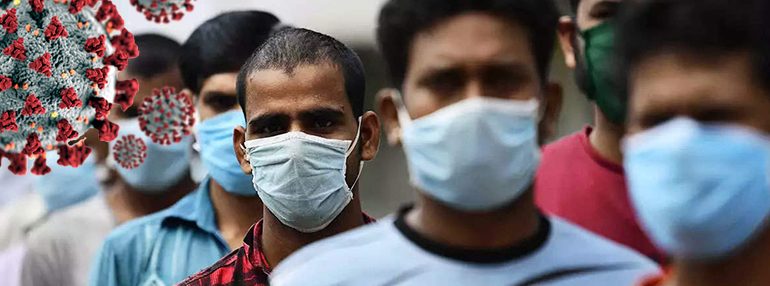With coronavirus cases still hovering around 60,000 infections per day after reaching close to 1,00,000 cases per day, and the government’s finances already stretched; the Indian economy is treading on a bumpy road to recovery. The drop of 23.9 per cent in GDP is the worst quarterly contraction and the sharpest fall in independent India’s economic history. Despite economic activities picking momentum, recovery will not be possible unless the arbitrary restrictions are eased. The Indian economy is struggling to get back on its feet and the sporadic shutdowns and partial lockdowns hang like a shackle from its neck.
The nationwide lockdown to curb the pandemic and the subsequent unlocking phases have wreaked havoc on the economic health of the country. As per AC Nielsen data, FMCG sales were at 70 per cent of the pre-COVID level in May and at 100 per cent in June. However, in the subsequent months, the state-specific lockdown has taken the wind out of sales. Weekend curfews and restrictions on timings to open retail stores have shrunk the window of shopping for customers, which has taken a toll on sales for most of the retailers. The non-essential sector has been hit the most, especially general merchandising like apparel, footwear, etc., which is now operating at 20-25 per cent pre-COVID level. If one looks at the European markets- Belgium, Netherlands, Turkey, which were not severely impacted, their retail sector has been growing steadily at 15-20 per cent. Even countries like France, Germany, Spain, which were hit hard have bounced back to 90 per cent pre-COVID level.
India has approximately 3.5 crore unorganized shopkeepers in the country; if the situation prevails and markets remain shut, it will create a major socio-economic problem. 15-20 per cent of small shopkeepers and kiranas have returned to their villages and are unlikely to come back. The pandemic has led to massive job losses across the country. According to the Centre for Monitoring Indian Economy, nearly 20 million salaried people have lost their jobs since the lockdown- a clear cause of concern. Hence, it is pertinent to safeguard the safety net of the most vulnerable who are majorly in the informal and unorganized sector.
As we still grapple to curb the pandemic with spiraling cases of infections daily; we need to have some consistency of guidelines especially at the state level. Social distancing can be followed only if stores are allowed to operate for longer hours. A restricted time period of 4-5 hours limits customers’ window of shopping and is rather contrary to the effort. Stores need to stay open the whole day to spread the shopping hours and effectively implement social distancing norms. A surge in COVID-19 cases is expected to keep household consumption in check and as uncertainty looms, people are going to hold onto their savings. The government will have to work on relief measures to boost discretionary spending in order to stimulate the subdued demand. There is a need to create extra liquidity to propagate the demand in the market.
As the hope for a COVID-19 vaccine brightens, we can see some optimistic rebound in the domestic as well as global markets. The government needs to step up fiscal policy support and implement more bold structural reforms to garner investment opportunities to pave the way for India to become atmanirbhar (self-reliant). In the coming months, the government will have to work on tax relief measures to uplift the consumer sentiment. There is also a need to reduce the number of tax slabs in the present GST system.
Technology will play a vital role in transforming the retail experience, and as small retailers and kiranas dominate 90 per cent of food and grocery market, they cannot be left unaccounted for. Today, they are more open to embrace technology and go digital versus a year ago. The government should support and empower these small shopkeepers and look at incentivizing the modernized and digitized kiranas. There needs to be an increased thrust on their transformation and digitization to enable more footfalls and profitability for them. India’s future lies in entrepreneurship; all efforts should be made to boost entrepreneurship to help create more employment opportunities and encourage India to move on the path of being atmanirbhar.
The magnitude of the downturn due to the pandemic and the pace of recovery remains uncertain. It will derail the near-term outlook and continue to pose as an economic disruptor. Over the next 12-18 months, things will slowly crawl back to the pre-COVID level, but growth momentum shall be gradual as the world is yet to find a vaccine and a definitive cure.
The author is Chair, FICCI- Retail & Internal Trade, and MD & CEO, METRO Cash & Carry India





